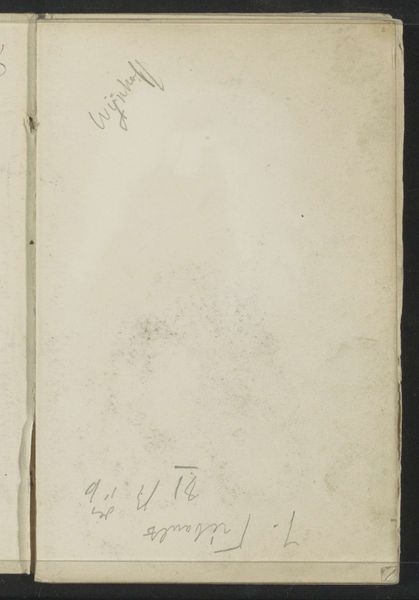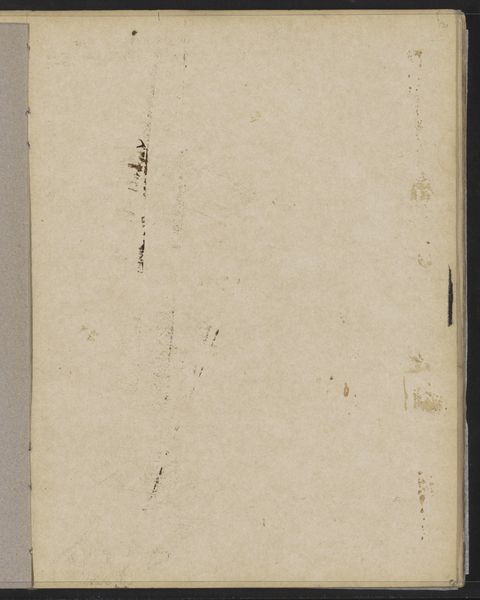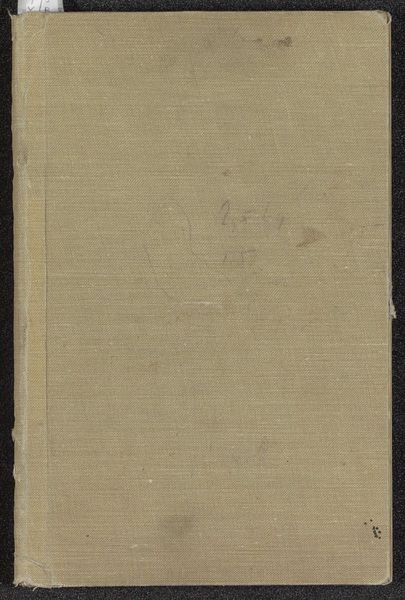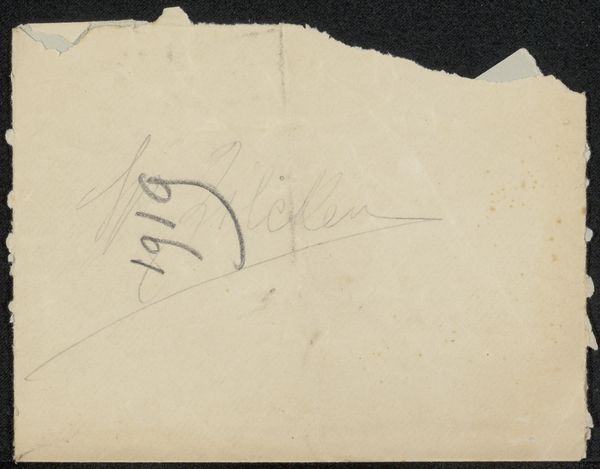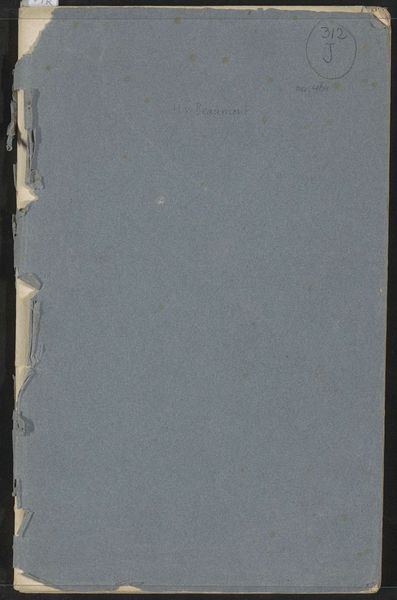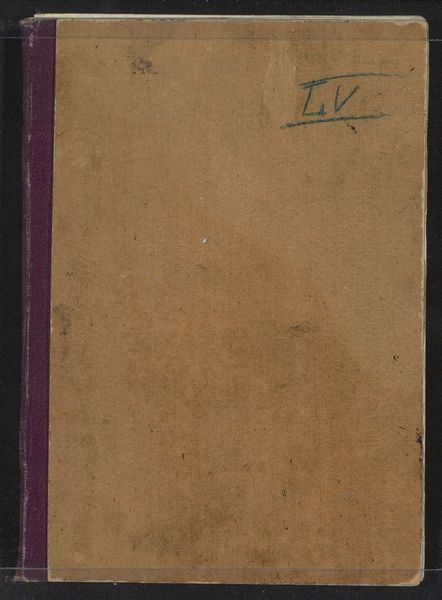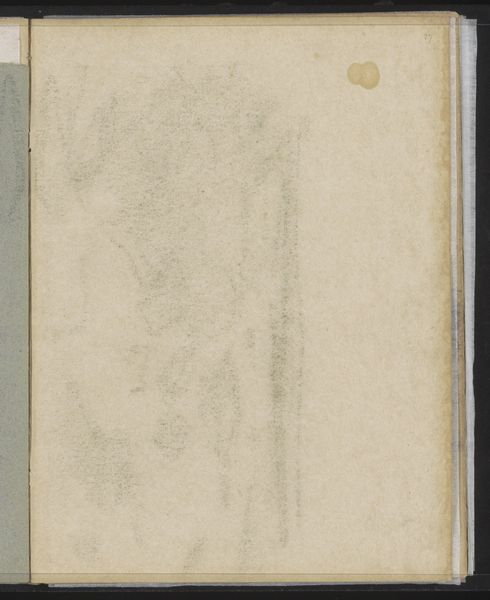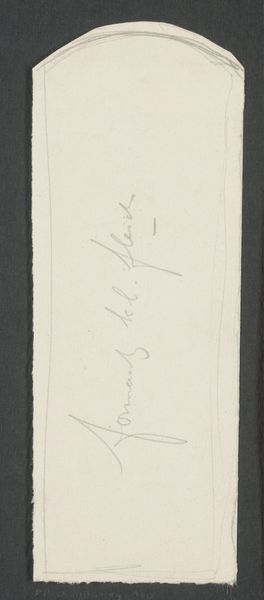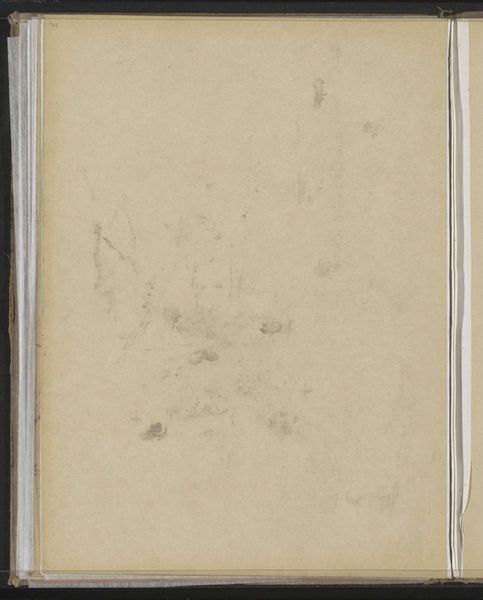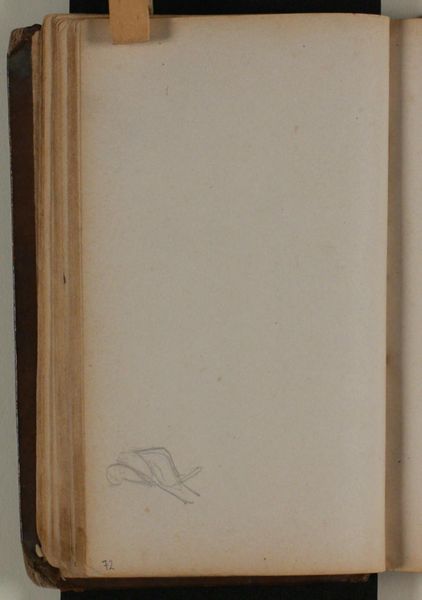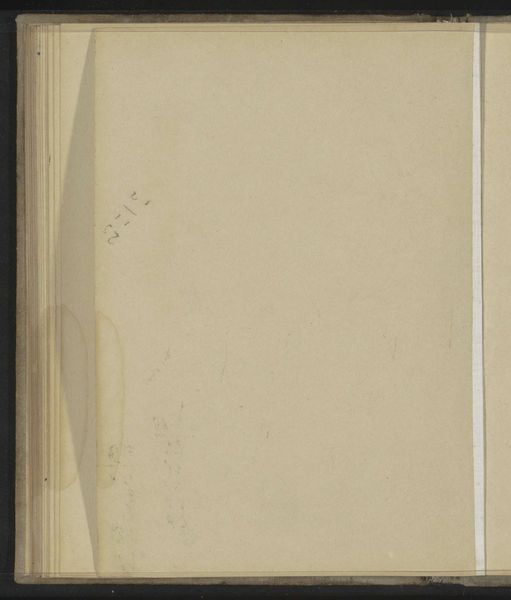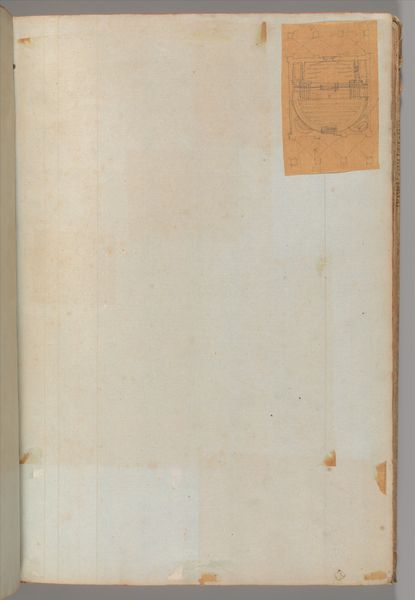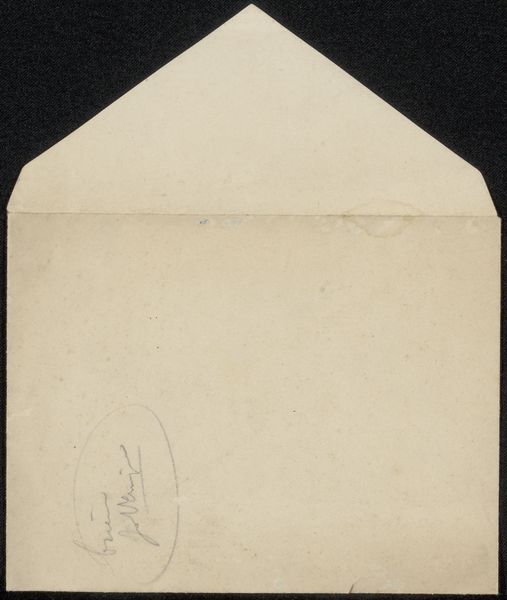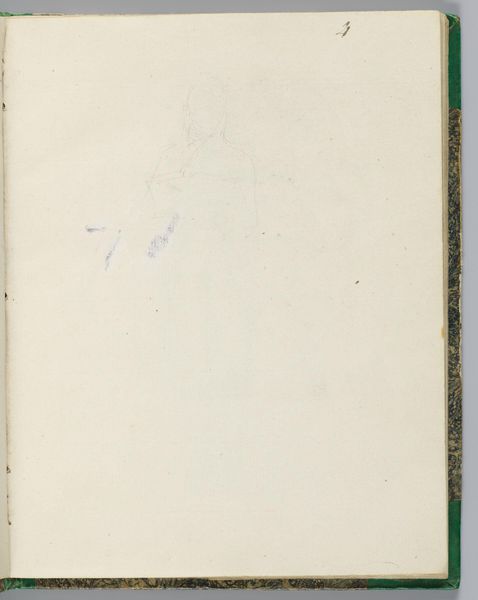
drawing, paper
#
drawing
#
paper
#
line
Copyright: Rijks Museum: Open Domain
Curator: It is quite sparse. Just a pale gray field broken by emphatic lines. I’d almost call it melancholic. Editor: Let’s consider this work on paper by Willem Witsen, entitled "Studie," made circa 1887-1891. Witsen was an influential figure in the Dutch art scene, known for his involvement in literary circles and his role as a champion of progressive artistic movements. Curator: So this isn't just about aesthetics then? It’s about Witsen placing himself within a particular network? Editor: Precisely. His commitment to depicting contemporary life places him in a certain political and aesthetic position. He had a keen interest in modernising Amsterdam and was involved in groups advocating for artistic autonomy. Curator: The lines themselves though are rather striking. They are almost violent in their energy against that placid background, yet incomplete. It feels as though we are only getting a portion of a larger image. Editor: I am particularly interested in what this study meant in terms of Witsen's public persona and output at the time, and also later: How did the contemporary understanding of 'finish' and display affect its status then, and does today's perspective shift that significantly? The very existence of a work like this forces one to reassess commonly held definitions about this period of art production. Curator: But beyond the socio-historical placement, do the lines carry meaning alone, purely as shapes and directions? The upper one seems almost poised for something before halting in place! Editor: I appreciate the formal tension it creates; these dynamic slashes disrupting the relative passivity of the ground around them. But seeing it exclusively in isolation risks obscuring what made Witsen tick as a politically astute operator, and a pioneer whose visions literally helped redraw the cityscape. Curator: Perhaps, and maybe appreciating that duality enriches the whole experience anyway, between intention, creation and a lifetime in history that never ceases to unfold before our very eyes. Editor: Absolutely, understanding Witsen's role contextualises what may seem on the surface an uncomplicated sketch, but becomes something deeply invested with a sense of social progress.
Comments
No comments
Be the first to comment and join the conversation on the ultimate creative platform.
